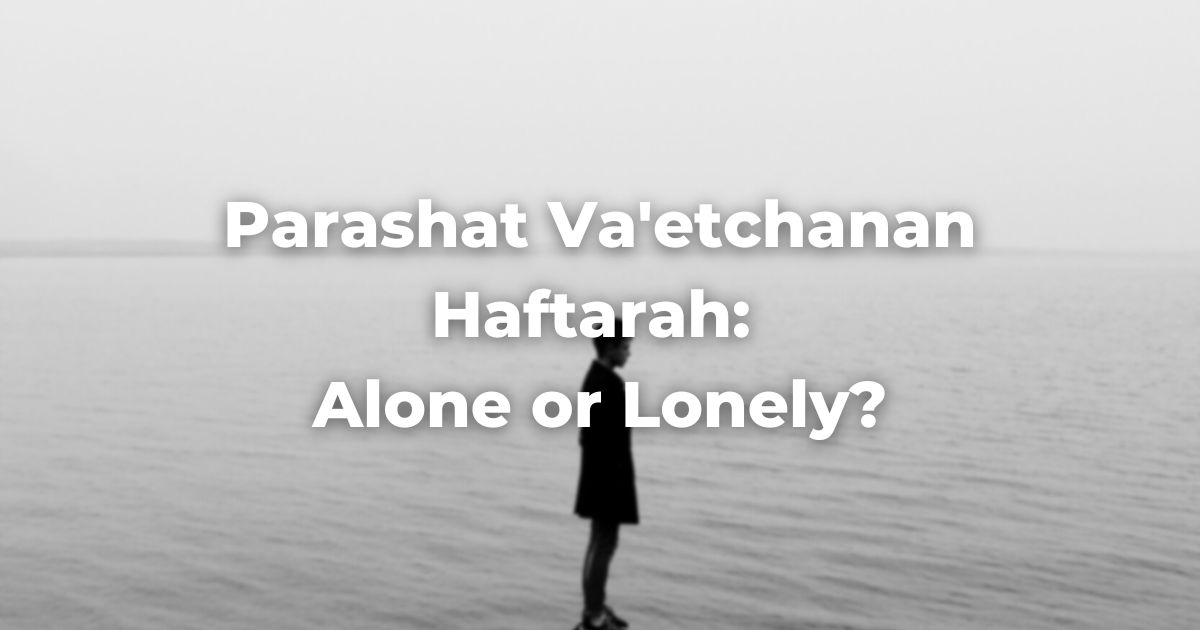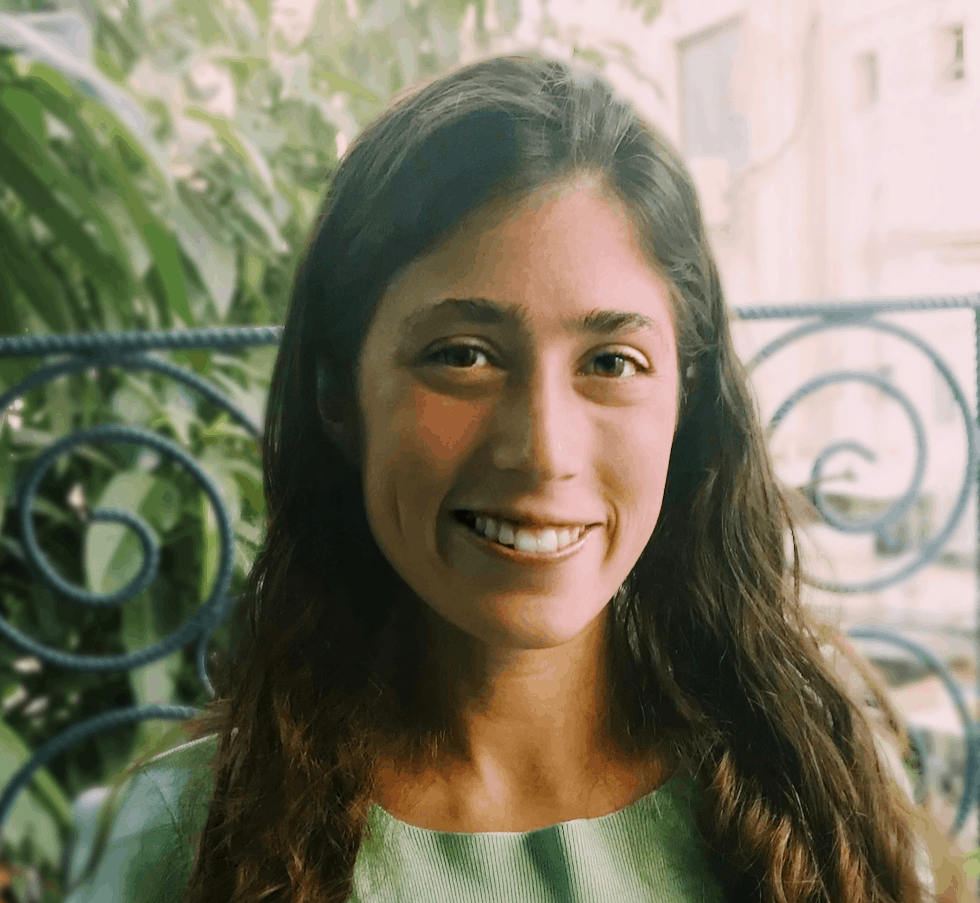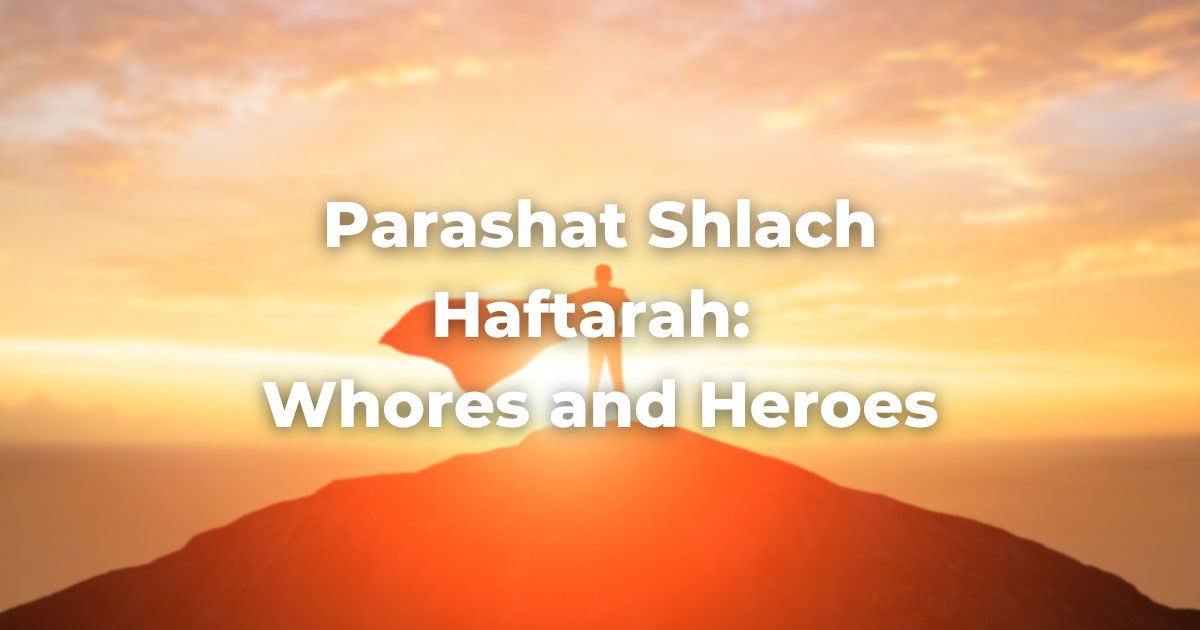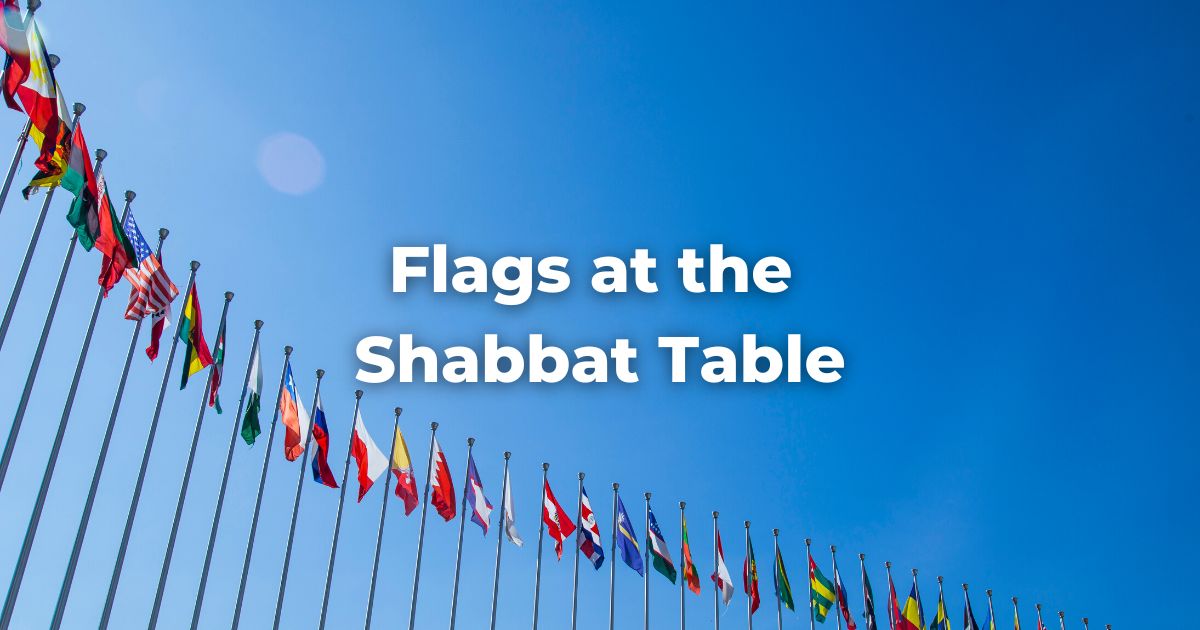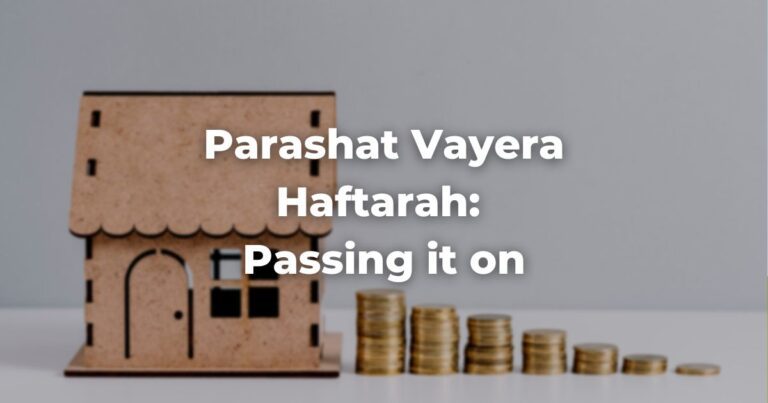This Shabbat is Shabbat Nachamu, the Shabbat of Comforting.
Who Will Comfort Us?
After Tisha b’Av, after our moment of reliving the existential crisis of losing God, our homeland, and our nation, God takes us back with beautiful words of consolation. We, who had no one to comfort us, now receive exactly what we have asked for—union again with God.
From the beginning, a deep-seated fear of loneliness runs through the TanakhAn acronym for the name of the Hebrew Bible: Torah, Neviim, and Ketuvim. Read more.
We find it first in the story of creation. God has almost completed creation and is getting down to the business of telling the first human the rules to live by in humanity’s new home. But God pauses, interrupting Godself, to say, “it is not good that the human should be alone (Bereshit 2:18).”
God creates a second human and we should never have to be lonely again.
We Are Alone
But we are. Our prophets perhaps most of all.
And in our loneliness, we look back to what it means to be created in the divine image. We marvel at God’s solitary state, God’s existence as alone but not lonely. After God destroys the Egyptians in the Red Sea, severing our umbilical cord from our incubation as a nation in Egypt, we celebrate God’s independence from anyone and everything. We sing the Song of the Sea: “Who is like you among gods, God? Who is like you, majestic in holiness, awe-inspiring in praise, working wonders (Exodus 15:11)?”
The answer to the question we pose is no one. No one is like God. We are alone, but our God is alone too.
Is Anyone Like God?
In our haftarah, we pose the same question.
We had been so very lonely during the exile that it is as if we were widowed. Now, upon receiving comfort we look at God’s solitude. We say, “To whom can you make God similar?” God responds a few verses later, echoing our words: “To whom can you make me similar?”
Again, the answer seems to be no one. God is not similar to other “gods.” God is singular, God is unique.
When we read the Book of Lamentations on Tisha b’Av, we encountered a similar question. The speaker looked at us, at destroyed Jerusalem, and asked:
“How can I bear witness for you? To what can I make you similar, oh Daughter Jerusalem? To what can I compare you so that I might comfort you, Maiden Daughter Zion? For large as the sea is your destruction. Who can heal you (Lamentations 2:13)?”
The answer there also seemed to be no one. No one was like us. No one had suffered as we had suffered. And so, we would never be able to find comfort; we would never be able to find healing.
Shabbat Nachamu reframes that loneliness for us. It is a Shabbat of Comfort.
Our position as like no one else is not a slur but a word of praise. Both God and us are unique in our incomparability. What’s more, we are “like” each other. We are created in the image and in the likeness of God.
When we recognize this, our existential fear of loneliness can transform into a celebration of our singularity.
See more: Parashat Va’etchanan
Originally posted as part of the Conservative Yeshiva at the Fuchsberg Jerusalem Center’s Torah Sparks. Support TorahRefers to the first five books of the Hebrew Bible, the Tanakh, also called the Five Books of Moses, Pentateuch or the Hebrew equivalent, Humash. This is also called the Written Torah. The term may also refer to teachings that expound on Jewish tradition. Read more learning from the Fuchsberg Jerusalem Center/Conservative Yeshiva for leaders and seekers around the world here.
Authors
-

Bex Stern Rosenblatt is the Conservative Yeshiva’s Faculty-in-Residence for the Mid-Atlantic Region of the United States, teaching Tanach, using the techniques of close-reading, theater, feminist readings, and traditional commentators. Bex also directs the CY’s recruitment efforts in North America. After finishing her B.A. in History and German at Williams College, Bex received a Fulbright Grant to Austria. She later earned an M.A. in Tanakh from Bar Ilan University and has also studied at the Conservative Yeshiva and Bina Jerusalem. Bex is the founder of HavrutaA study partner. A hevruta is more than just a ‘study buddy’ it is a serious and personal relationship between colleagues. Also spelled: Havruta Read more Tel Aviv, an organization that facilitates guided pair-learning of the Tanakh.
View all posts -



The Fuchsberg Jerusalem Center (FJC) is a home in the heart of Jerusalem where leaders and seekers can find an authentic place in Jewish tradition to call their own. FJC offers opportunities to study, pray and explore within an egalitarian and inclusive setting, creating multiple pathways for finding personal and communal meaning.
View all posts

